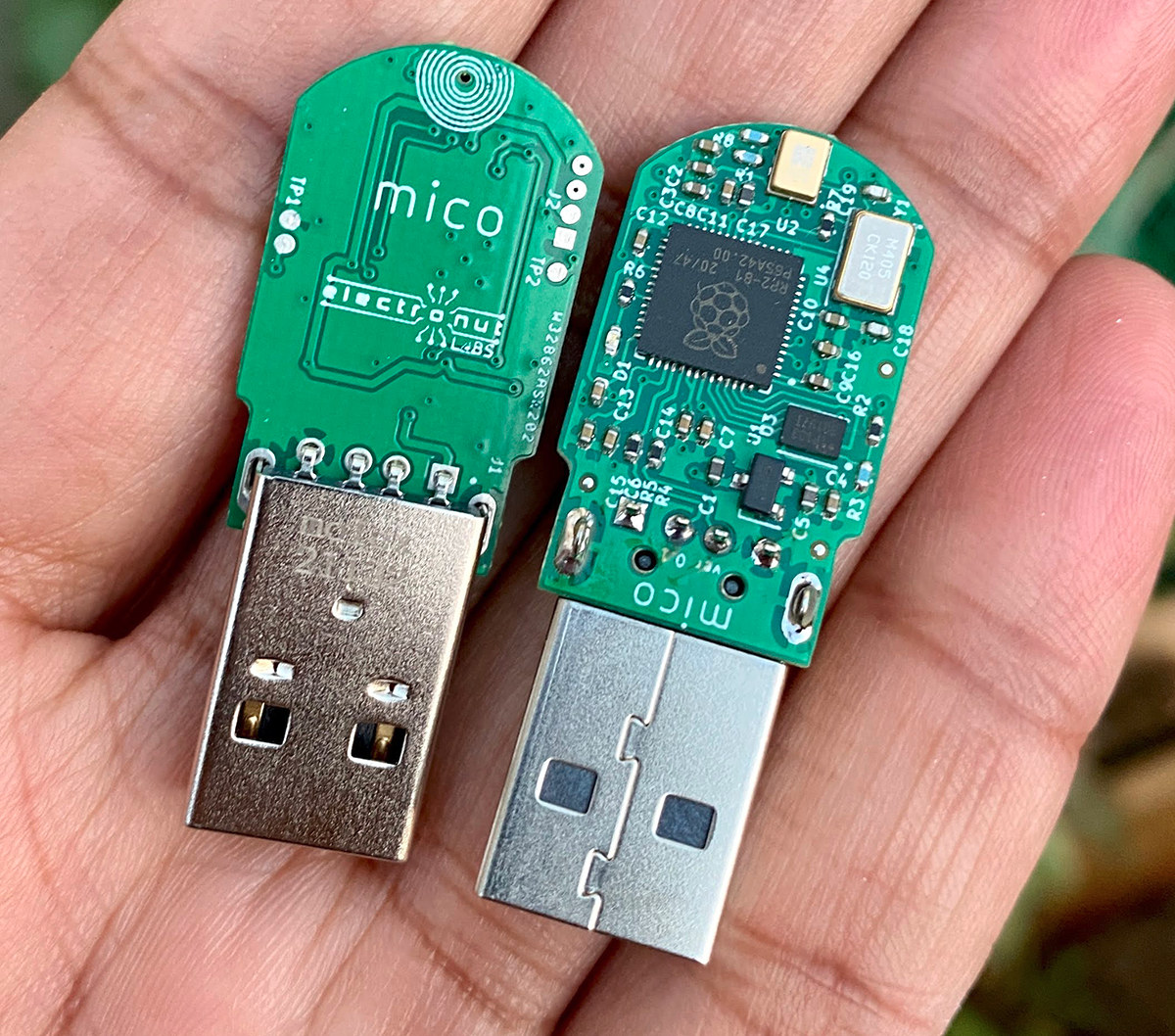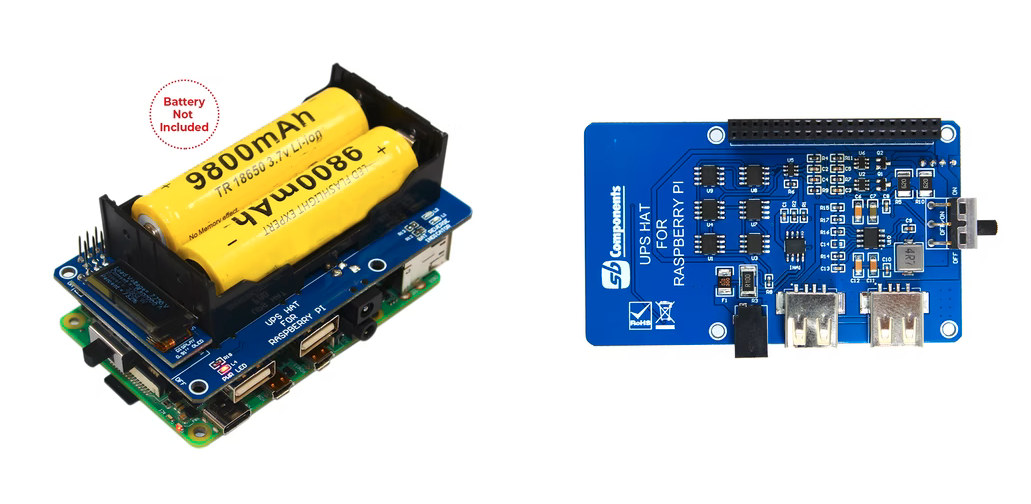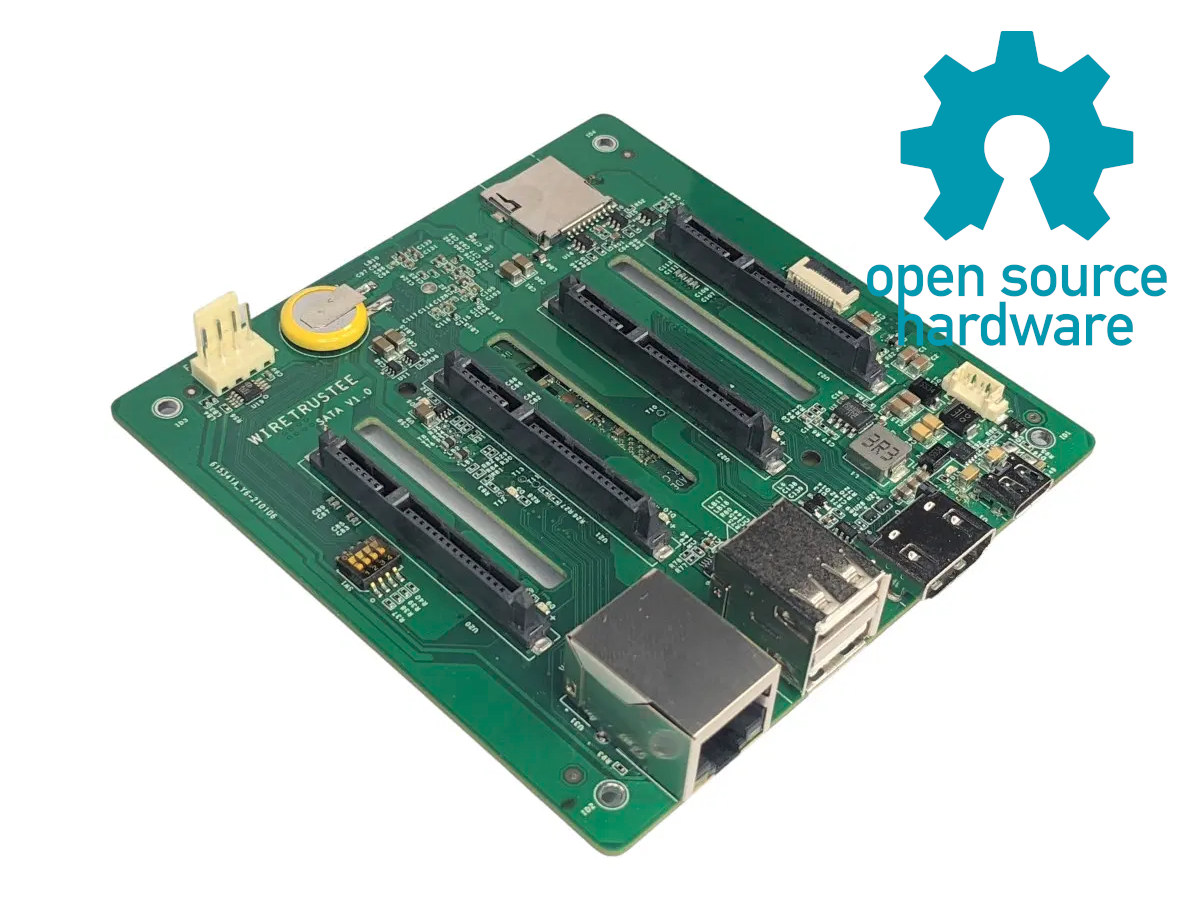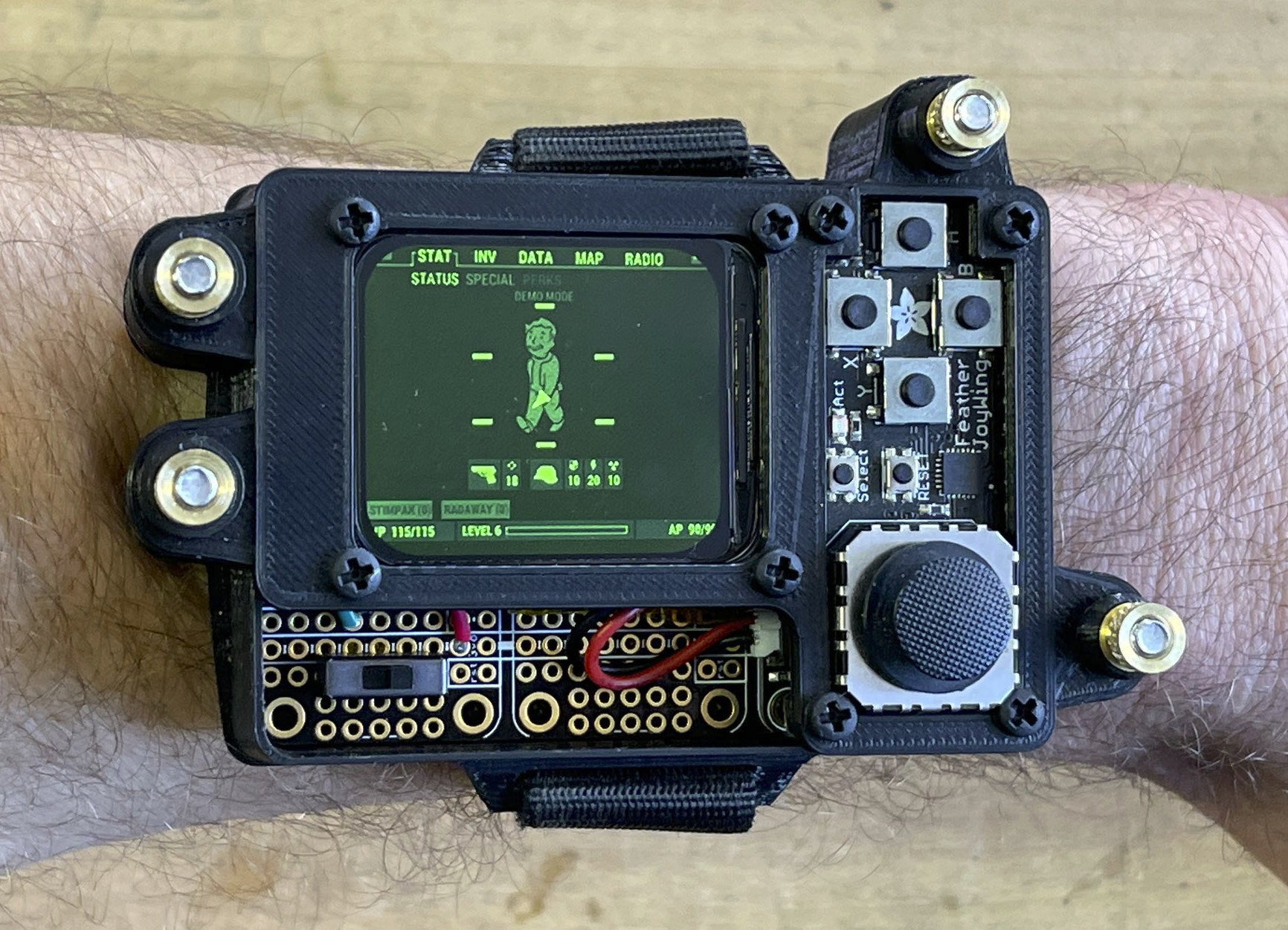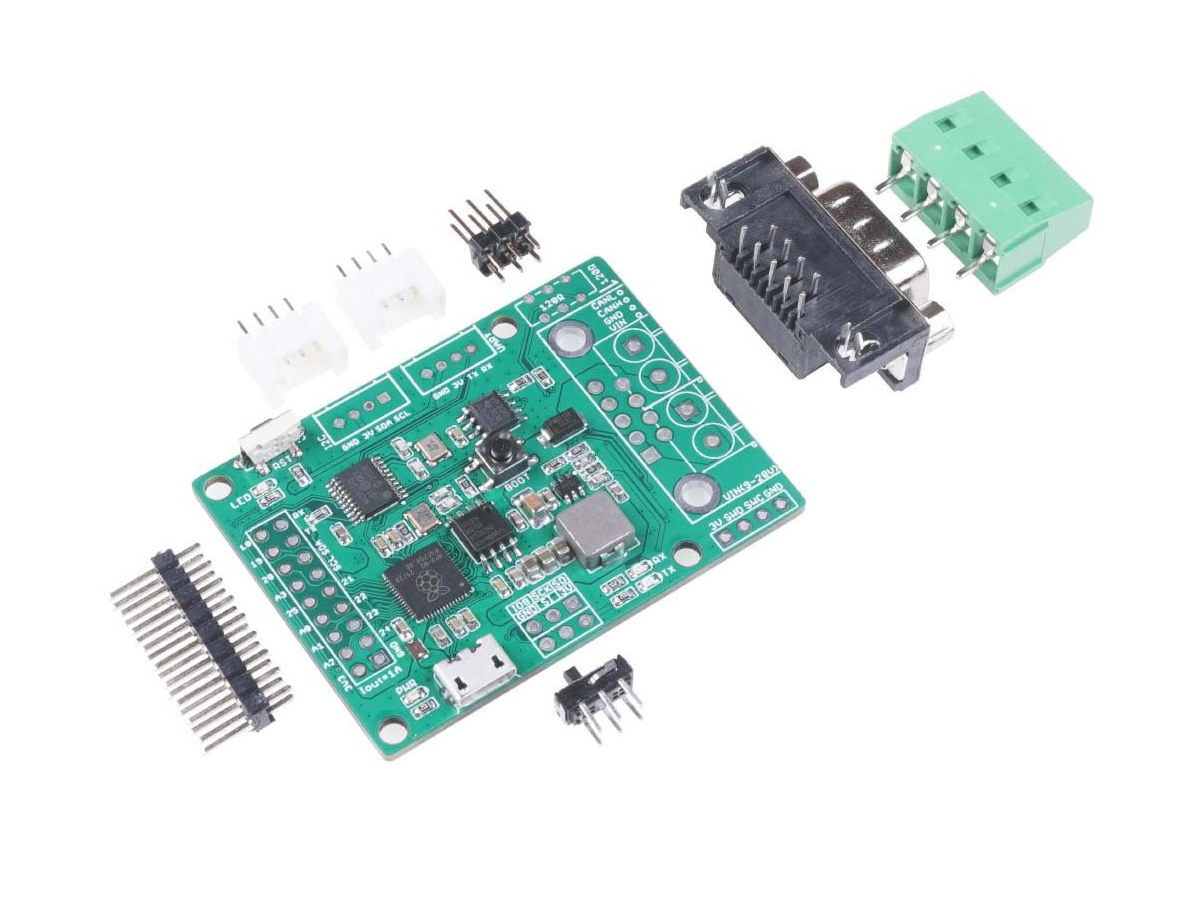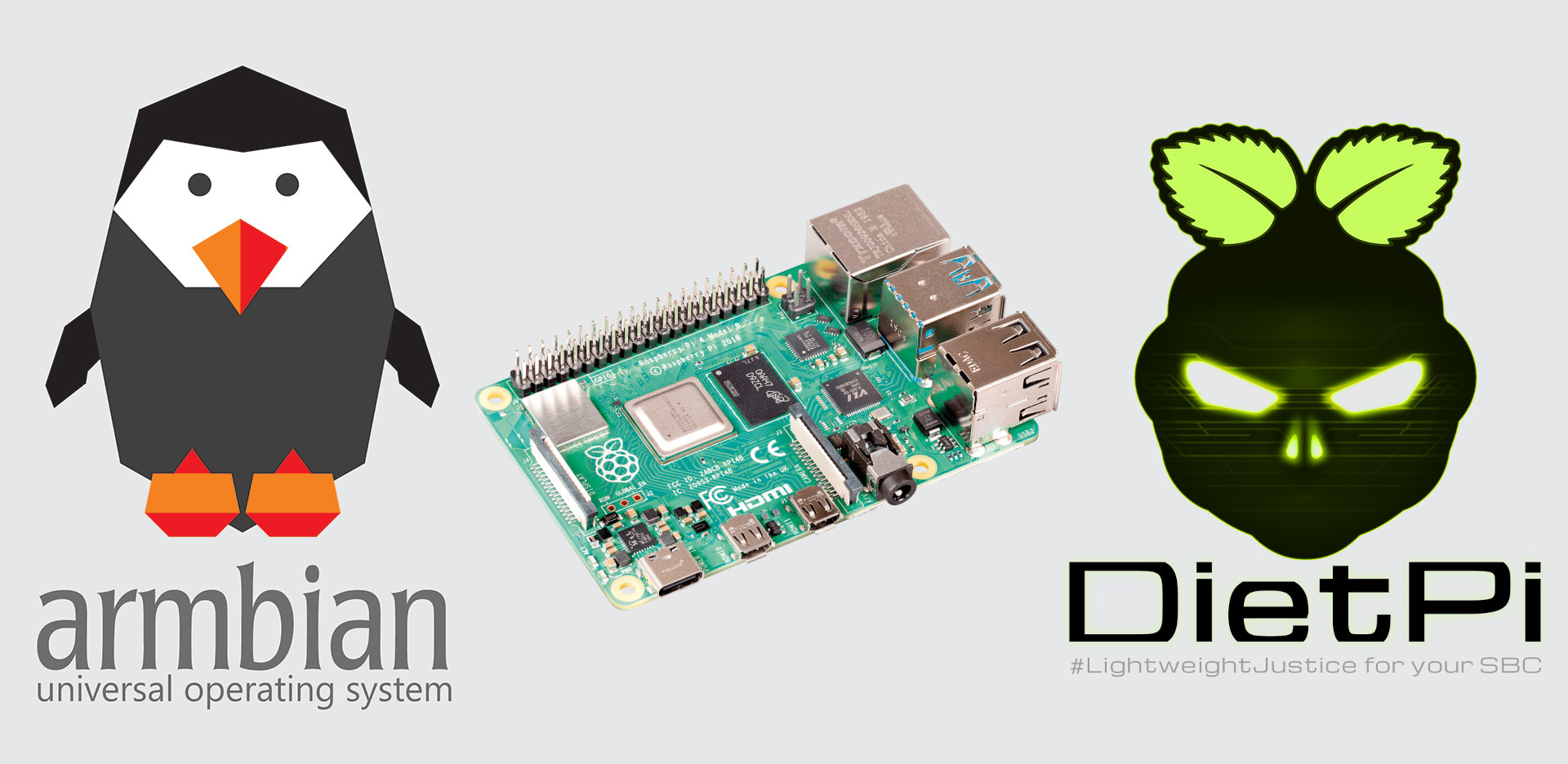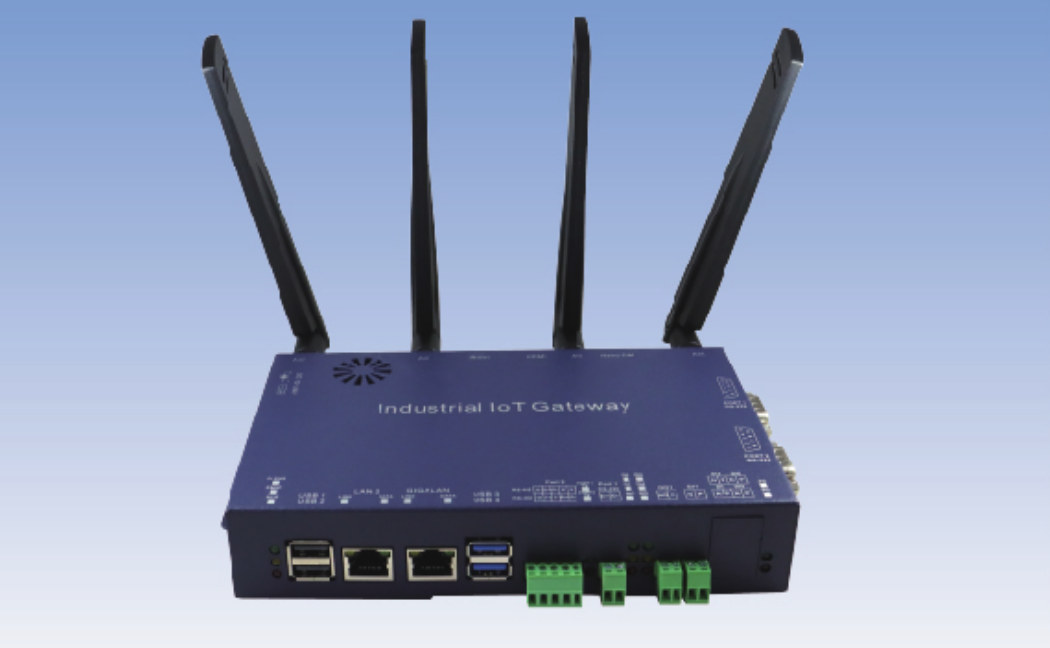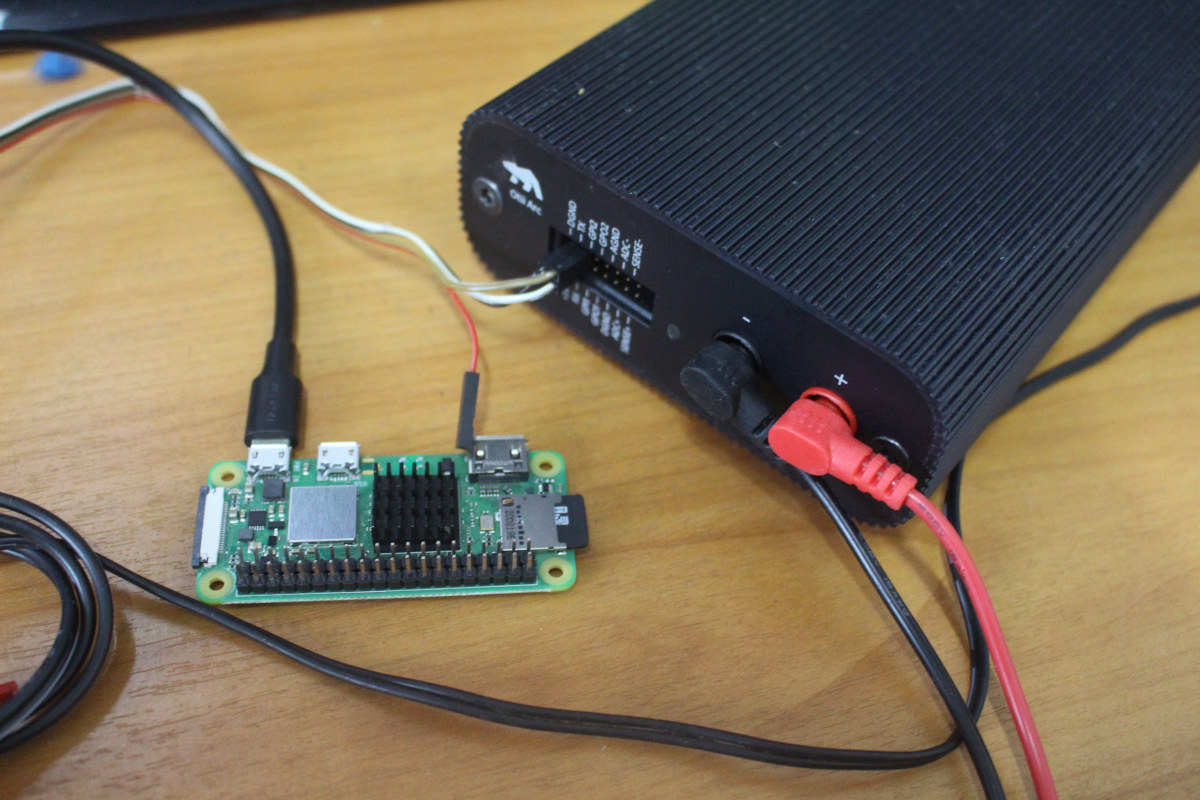Raspberry Pi RP2040 dual-core Cortex-M0+ microcontroller has found its way into Mico, a compact USB microphone with a PDM microphone providing better quality than cheap USB microphones going for one or two dollars or even 5 cents shipped for new Aliexpress users. The project started when Mahesh Venkitachalam (Elecronut Labs) was doing audio experiments with Machine Learning on the Raspberry Pi, and found out USB microphone dongles were extremely noisy with poor (distance) sensitivity, so he completed the project with a high-quality I2S microphone instead. He then had the idea of making his own USB microphone and found out Sandeep Mistry had already developed a Microphone Library for Pico, so he mostly had to work on the hardware that’s how Mico Raspberry Pi RP2040 USB microphone came to be. Mico specifications: MCU – Raspberry Pi RP2040 dual-core Cortex-M0+ microcontroller @ up to 133 MHz with 264KB SRAM Storage – 128Mbit […]
Raspberry Pi UPS HAT takes two 18650 batteries (Crowdfunding)
Raspberry Pi UPS solutions have been available for years with products like PiJuice Zero, PiVoyager, or LiFePO4wered/Pi+. But the team at SB Components has designed another UPS HAT for Raspberry Pi with a holder for two 18650 batteries. The HAT is designed for 5V operation up to 2.5A, connects with the Raspberry Pi SBC through the I2C bus from the 40-pin GPIO header, and is equipped with a 0.91-inch OLED for information display. UPS HAT for Raspberry Pi specifications: Power Input – 8.4V/2A via DC jack Power Output – 5V up to 2.5A through LDO chip (GPIO header and 2x USB ports) Display – 0.91-inch OLED Host interface – I2C Misc – On/Off switch Battery support 18650 Lithium battery (not included) via holder for two batteries Battery reverse indicator Charging and voltage monitoring via TI INA219 I2C chip Battery voltage balancing with Hycon HY2213 Battery protection IC (Hycon HY2120) Dimensions […]
Phased out Raspberry PI CM4 quad SATA carrier board becomes open-source hardware
Wiretrustee carrier board for Raspberry Pi CM4 was unveiled about one year ago with four SATA connectors to help people build their own 4-bay NAS. Unfortunately, the company decided to discontinue the project due to the semiconductors market situation. The good news is the board is now open-source hardware with all resources shared publicly including the Allegro schematics and PCB layout, Gerber files, 3D models for the heatsink, and case designs for 2.5-inch or 3.5-inch drives. All files are available under “CERN Open Hardware Licence Version 2 – Permissive”. Here’s a quick reminder about the Wiretrustee board specifications: Supported SoM – Raspberry Pi Compute Module 4 and 4 Lite Storage 4x SATA 2.0 via Marvell 88SE9215 (PCIe 2.0 x1 to 4 6Gb/s SATA ports, no HW RAID) MicroSD card slot Video Output – HDMI 2.0 up to 4Kp60 Networking – 1x Gigabit Ethernet port USB – 2x USB 2.0 ports […]
DIY Pip-Boy wrist computer is equipped with Adafruit Feather RP2040 board
The Pip-Boy is a (virtual) personal information processor found in Fallout post-apocalyptic role-playing video games. But John Edgar Park decided to bring the wrist computer to (real) life combining an Adafruit Feather RP2040 board, a round IPS TFT color display, directional buttons, a joystick, and a battery. The Raspberry Pi RP2040 based Pip-Boy is programmed with CircuitPython and the demo code is a slide-show with navigation controls, but you could obviously adapt the code to your needs. The main components are: Black Adafruit Feather RP2040 board Adafruit Joy FeatherWing adding buttons and a joystick Adafruit 1.69″ 280×240 Round Rectangle Color IPS TFT Display FeatherWing Tripler mini kit to connect the two boards above and the display 3D printed enclosure A 3.7V/420mAh LiPo battery for power On/off switch The design is completed with some headers, stand-offs, screws, and a nylon watch strap. You’ll find detailed instructions with the list of parts, […]
CANBed Raspberry Pi RP2040 board supports CAN Bus, OBD-II protocol
We previously wrote about adding CAN Bus to Raspberry Pi Pico with CANpico expansion board. CANBed is a single board with a Raspberry Pi RP2040 microcontroller and a Microchip MCP2551 CAN receiver plus some extra I/Os that offers an alternative. CANBed supports the CAN 2.0 and OBD-II protocols via either a DB9 connector or a 4-pin terminal block, offers two 4-pin Grove headers and an extra I/O header for expansion, as well as 9-28V power input. CANbed specifications: MCU – Raspberry Pi RP2040 dual-core Cortex-M0+ microcontroller @ up to 133 MHz with 264KB SRAM Storage – 2MB SPI flash CAN 2.0 or OBD-II interface via DB9 port or 4-pin terminal block via Microchip MCP2551 CAN transceiver, 120 Ohm terminal resistor. USB – 1x Micro USB port for programming Expansion 2x Grove header (I2C + UART) SPI header 18-pin header with GPIO, UART, I2C, 4x analog inputs, 5V, GND Misc – […]
Raspberry Pi 4 gets Armbian test images, DietPi 7.9 released
Ubuntu and Debian images built by Armbian got popular because of the sad state of affairs of most single board computers. But since Raspberry Pi boards are rather well-supported by the Raspberry Pi Foundation and community, plus part of it is closed-source, there’s been little motivation by the Armbian community to work on it, and that means there’s no official support for Raspberry Pi. But some Armbian test images have just been released for Raspberry Pi 4, specifically Ubuntu 22.04 “Jammy Jellyfish” images with a CLI (headless) version, and two desktop variants with Cinnamon and XFCE desktop environments which you can download on their server(s). Separately, DietPi 7.9 lightweight Linux distribution based on Debian has also been released with various improvements. The good news about Armbian images for Raspberry Pi is that they exist, but the less good news is that those are still “test images”, and the popular board […]
5G IoT/AIoT industrial gateway ships with Raspberry Pi Compute Module 4
WPC-632-Pi CM4 is an industrial IoT gateway based on Raspberry Pi Compute Module 4 with optional 5G or 4G LTE cellular connectivity, that joins other Raspberry Pi CM4 industrial gateways such as CompuLab IOT-GATE-RPI4, CatsPi Industrial Lite, Modberry M500 CM4, among others. The Linux gateway features two Ethernet ports, RS232/RS485 and other I/Os via terminal blocks, mPCIe and M.2 sockets for expansion with 5G modem 4G LTE mode, AI accelerator, or an NVMe SSD, as well as support for 9V to 32V wide-range input power. WPC-632-Pi CM4 industrial gateway specifications: SoM – Raspberry Pi Compute Module 4 with Broadcom BCM2711 quad-core Cortex A72 processor with VideoCore VI GPU, up to 8GB RAM, up to 32GB flash, optional wireless module Storage – Optional PCIe SSD via M.2 key M socket Video and audio output – 1x micro HDMI port up to 4Kp60 with audio Camera – 1x MIPI CSI-2 connector Connectivity […]
A deep dive into Raspberry Pi Zero 2 W’s power consumption
When I completed my review of Raspberry Pi Zero 2 W, I mentioned I would test the power consumption of the board later. It took a while, but I’ve finally come around it using Otii Arc from Qoitech and Otii software to provide some pretty power consumption charts, and even energy consumption. Since the Raspberry Pi Foundation recommends a 5V/2.5A power supply, I’ll first try to get as close as possible as 2.5A, then I’ll go through tricks to reduce idle power consumption to less than 75 mA / 375 mW, and finally check the energy consumption under various CPU core count and frequency. Raspberry Pi Zero 2 W Power consumption under load, with accessories I started with the latest Raspberry Pi OS Lite “Bullseye” image and connected my Raspberry Pi Zero 2 W board to Qoitech Otii Arc tools as shown below. It used to cost around $500, but […]


